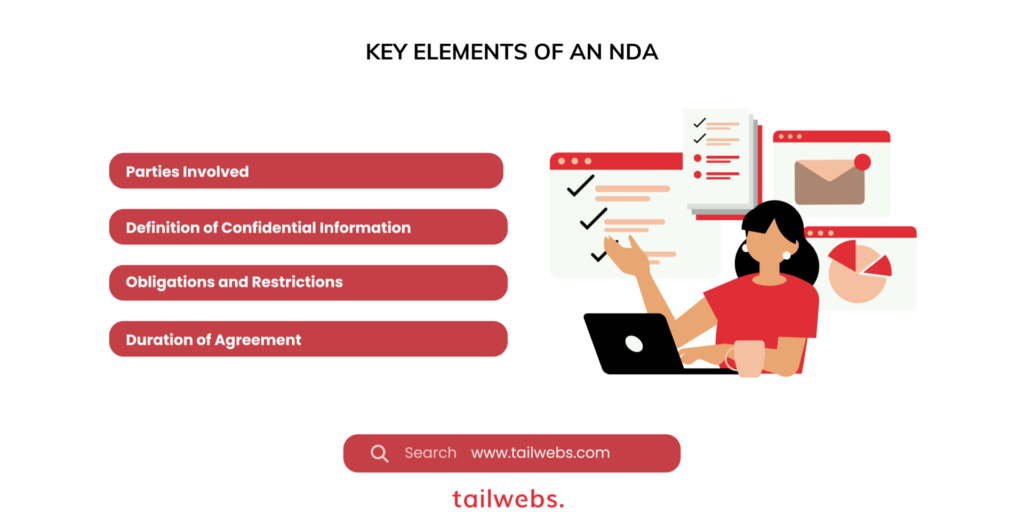Non-Disclosure Agreements? What is NDA? In the realm of technology, confidentiality is paramount. Businesses frequently collaborate with external partners, vendors, or service providers to bring their innovative ideas to fruition. Amidst this collaboration, the protection of sensitive information stands as a pivotal concern. This is where Non-Disclosure Agreements (NDAs) play a crucial role.
What is a Non-Disclosure Agreements (NDA)?
A Non-Disclosure Agreement, commonly referred to as an NDA, is a legal contract employed to safeguard confidential information shared between parties. It establishes a confidential relationship, outlining the terms and conditions under which sensitive data will be shared while restricting its disclosure to third parties.
Key Elements of an NDA:
1. Parties Involved:
It identifies the parties entering the agreement – typically the disclosing party (owner of information) and the receiving party (recipient of information).
2. Definition of Confidential Information:
NDAs clearly specify what constitutes confidential information. This encompasses proprietary technology, trade secrets, business strategies, client data, or any sensitive details disclosed during collaboration.
3. Obligations and Restrictions:
The agreement delineates the responsibilities of the receiving party to maintain confidentiality and outlines restrictions on the use, disclosure, or reproduction of the confidential information.
4. Duration of Agreement:
NDAs specify the duration for which the confidentiality obligations persist, often extending beyond the termination of the business relationship.

Importance of Non-Disclosure Agreements (NDA) in Tech Services
1. Protection of Intellectual Property
In the tech industry, where innovation is a cornerstone, safeguarding intellectual property is paramount. NDAs shield proprietary technology, software algorithms, unique functionalities, or any novel concepts shared during collaboration from unauthorized use or disclosure.
2. Trust and Confidence
NDAs foster trust between parties engaging in collaborative ventures. They offer a formal framework that assures the disclosing party of confidentiality, encouraging open sharing of sensitive information critical for project success.
3. Legal Recourse
By delineating obligations and consequences in case of breach, NDAs offer a legal recourse for parties in the event of confidentiality violations. This legal protection acts as a deterrent, dissuading the recipient from exploiting or divulging confidential information.
4. Preserving Competitive Edge
Maintaining confidentiality through NDAs safeguards a company’s competitive advantage. In the fast-paced tech landscape, where innovation can determine market leadership, protecting sensitive information ensures that competitors do not gain access to valuable insights or technologies.
5. Client Trust and Reputation
For tech service providers, adhering to robust confidentiality measures through NDAs enhances their credibility. Respecting client confidentiality fosters positive relationships, solidifying the company’s reputation as a trustworthy and reliable partner.

In conclusion, Non-Disclosure Agreements are pivotal instruments in the tech industry, offering a shield of protection around valuable intellectual property and confidential information. They not only establish legal boundaries but also nurture trust, fortify business relationships, and safeguard the competitive edge vital for success in today’s technology-driven landscape.




